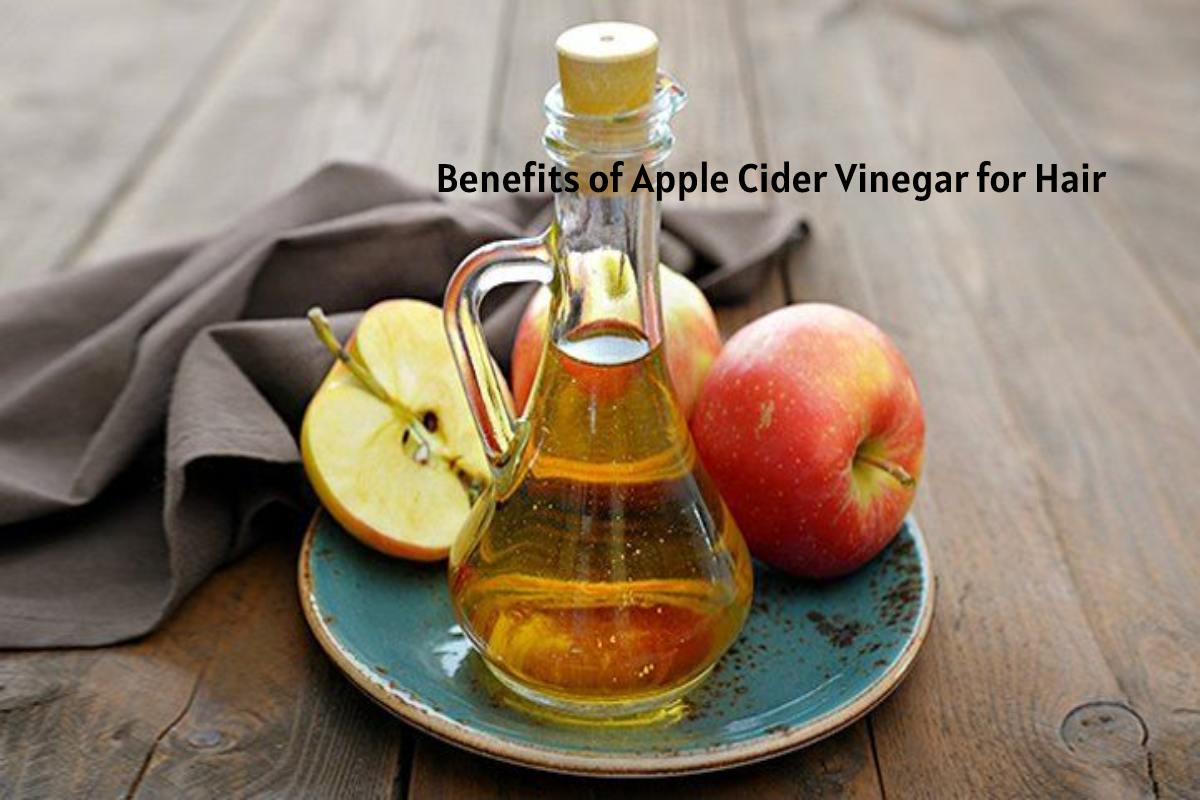Table of Contents
Introduction
Benefits of Apple cider vinegar is one of the utmost popular healthy foods, made with apple fermentation and minerals and acids. Apple cider vinegar we use as a home remedy for several purposes, including hair, improving scalp health, strengthening hair, and enhancing its shine.
It refers to medicine or comprehensive treatment for health problems. Although there are few studies on it, its results at the level of hair care are scientific documentation.
Apple cider vinegar can be an excellent natural remedy for itchy scalp or hair loss.
Why do We Use Apple Cider Vinegar for Hair Care?
many proofs confirm its importance to hair health:
1) ph:
Apple cider vinegar is an acidic substance containing a percentage of acetic acid.
Pale, canteen or curly hair is more alkaline than usual, and here lies the importance of apple cider vinegar, which helps increase acidity and rebalance hair health.
2) Antimicrobial:
Apple cider vinegar is a well-known home cleanser and may help control bacteria or breakfast that can cause problems with the scalp and hair, such as minor infections or itching.
3) Other benefits
It is also rich in micronutrients beneficial to hair, such as vitamin c and b. In addition, it is thought to contain alpha hydroxy acid, which helps peel scalp skin and is anti-inflammatory, helping to get rid of dandruff.
How do We Use Apple Cider Vinegar for Hair Care?
Apple cider vinegar lotion can be prepared:
Several tablespoons of apple cider vinegar, mix with water.
After using shampoo, apply the mixture to the hair and scalp evenly.
Leave a few minutes, then wash well.
A few drops of essential oil can be mixed with the mixture if the acid smell is very annoying. Although the smell goes away by rinsing.
This lotion can be used numerous times a week, and the amount of apple cider vinegar used can be increased each time, but it recommend to use a majority of 5 tablespoons
Important Notes
Apple cider vinegar is used to rebalance hair, but this should not be overstated and discontinued if hair and scalp problems worsen or the amount or number of times used is reduced.
Apple cider vinegar contains acetic acid, an acidic substance, which may irritate the skin.
Reduce apple cider vinegar with water before applying it to the skin, although the irritation it may cause disappears within two days.
Avoid eye contact. Wash them directly with water if this happens.
Following the above guidelines, apple cider vinegar is entirely safe to use.
Do studies support its use of apple cider vinegar for hair?
No direct research has tested the benefits of apple cider vinegar for hair yet. However, some research supports health effects on hair, although allegations still need further studies to prove.
Apple cider vinegar is a good feature, as it increases ph, which promotes hair health, and a study on the ph of shampoo found that high alkaline causes hair to break down and dry.
The study showed that most hair care products do not treat hair ph, that most shampoos tend to be alkaline, and because apple cider vinegar is a highly acidic substance. It may help reduce alkaline, adding smoothness hair, strength and shine.
Research also supports apple cider vinegar’s ability to fight microbes. Preventing scalp problems related to breakfast or bacteria. Including itching.
There is slight evidence that apple cider vinegar contains enough vitamins to affect hair health. Still, it contains several minerals such as manganese, calcium, potassium and iron. research has also not shown that apple cider vinegar contains alpha-hydroxy acid.
Apple cider vinegar has also not been proven to be anti-inflammatory but contains caustic acids. Which can cause inflammation when misused.
Conclusion
Studies support apple cider vinegar as a hair wash. Helping to strengthen hair and improve the shine by adjusting the ph of the hair and scalp.
It may also prevent scalp infections, but you should that to reduce inflammation or address scalp problems, such as the cortex.
Apple cider vinegar washes may not benefit everyone because there are individual differences. And can be inserted into the hair care routine to see if it’s appropriate.

